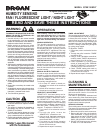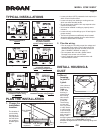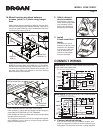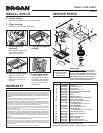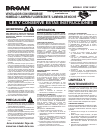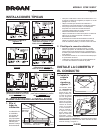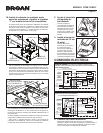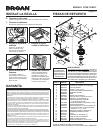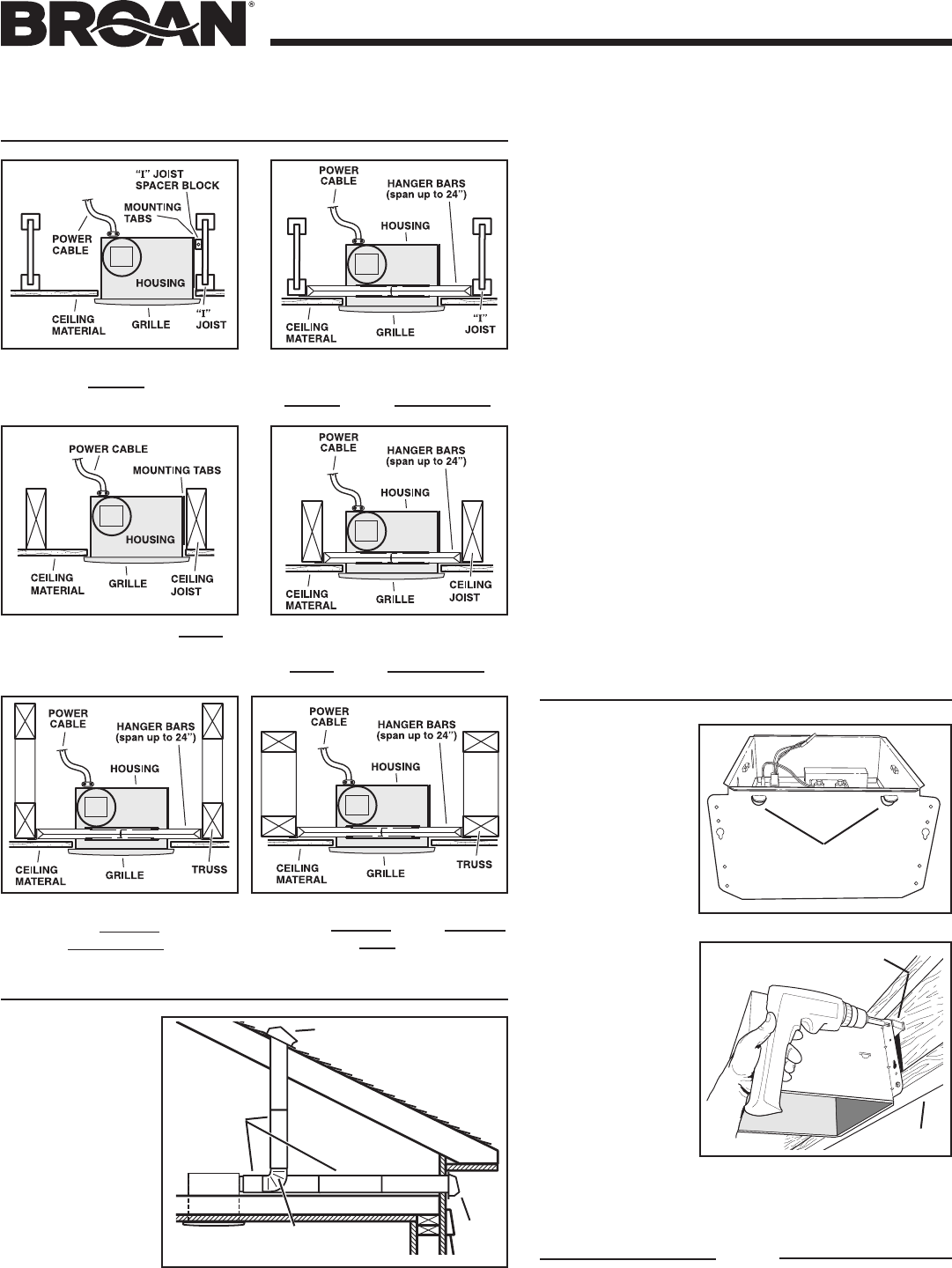
Page 2
MODEL QTXE110SFLT
TYPICAL INSTALLATIONS
Housing mounted to
I-joists.
Housing mounted anywhere
between trusses using
hanger bars.
PLAN THE INSTALLATION
1. Choose the
installation
location.
The location of
your humidity
sensing fan is
very important.
Use the follow-
ing guidelines
for best opera-
tion:
Housing mounted
anywhere between
I-joists using hanger bars.
Housing mounted to joists.
Housing mounted
anywhere between
joists using hanger bars.
Housing mounted anywhere
between trusses using hanger
bars.
INSTALL HOUSING &
DUCT
1a. Mount
housing
to joist or
I-joist.
Use a pliers to
bend housing
TABS out
to 90
0
. Hold
housing in
place so that
the housing
tabs contact
the bottom
of the joist.
The housing
mounts with
four (4) screws
or nails. Screw
or nail housing
to joist through
lowest holes in
each mounting
ange, then
SPACER
(use for mounting to I-Joist)
TABS
I-JOIST
through highest holes. NOTE: Mounting to I-JOIST
(shown) requires use of SPACERS (included)
between the highest hole of each mounting ange and
the I-joist.
OR
ROOF CAP *
6-IN. ROUND
ELBOW *
6-IN. ROUND
DUCT *
WALL
CAP *
* Purchase
separately
• Locate unit above (GFCI protected circuit required) or
within 5 feet of shower head.
• Locate unit away from heating or cooling sources
which can affect humidity levels.
• Do not locate near window. Unit may respond to the
outdoor humidity level.
• Unit must be installed in ceiling to properly sense
moisture.
• Locate unit only on at ceilings up to 12 feet high for
proper sensing.
• The fan will operate most efciently when located
where the shortest possible duct run and minimum
number of elbows will be needed.
2. Plan the wiring.
• Plan to supply the unit with proper line voltage and
appropriate power cable. Power cable should be
routed to the switch box rst and then to the unit
(See “CONNECT WIRING” on page 3).
• Do not operate this unit with a speed control.
Damage to the sensor unit will result.
• Light or night-light may be installed with a wall-
mounted motion control.



